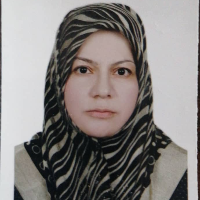A Mythology of Juz' 30 of the Holy Qurʾān based on Roland Barthes's Theory: the Case of Surahs An-Nāziʻāt, ʻAbasa, Ash-Shams, and At-Tīn
Mythology, a sub-branch of semiotics as theorized by Roland Barthes, analyzes the style of sending messages and the implicit goals in the cultural codes of a text. This study adopts a descriptive-analytical approach to analyze An-Nāziʻāt, Abasa, Ash-Shams, At-Tīn surahs in order to decode the implicit goals and ideologies they contain. The story of Musa and Firaun, the story of ignoring the request of the blind seeker of knowledge, the story of the Thamūd and cutting the hamstring of the camel loved by prophet Salih (AS), and finally Mount Sinai and God’s speech with Musa (AS) are identified as the four prominent cultural codes in these surahs. It can be concluded that these surahs are imbued with moral instructions and self-realization: An-Nāziʻāt preaches avoiding pride and one's following carnal desires; Abasa urges virtue based on the request and need of people who seek the truth, not based on the personal inclinations of the preacher; Ash-Shams asks people not to follow the majority of the society and highlights individual and ideological independence of each member of the society without being influenced by others; and At-Tīn recommends visiting the nature, particularly mountains, as necessary to improve the level of human insight and perception as well as a factor for self-realization and reconsidering one’s interactions with others.
-
A study of the term “Yam” in the Holy Qur’an from the perspective of the Semitic languages
, Fateme Zarei *
A Quarerly Journal Lesan - on Mobeen - on, -
The aesthetics of fire and candle in the poetry of AlSarī al-Raffā based the phenomenology of Gaston Bachelard
Houman Nazemian, Ali Asvadi, Zahra Izadi *
Iranian Association of Arabic Language and Literature, -
The function of narrative techniques in the novel "Bread on the Table of the uncle Milad" by Mohammad Al-Naas
, Salman Azmoon Ali Abad *
Journal of The Journal of New Critical Arabic Literature, -
Reading the translation of Surah Baqarah and Al-Imran (based on Eiser's aesthetic theory)
Soudabe Mozafari *, Jamileh Atabi
Islamic Studies and Quranic Research in the Contemporary World, -
The function of textual meta-functions in Ahmad Matar's poem Daur with Halliday's map-oriented linguistic approach
Zohreh Naemi, *
Journal of The Journal of New Critical Arabic Literature, -
The Semiotics of the Quraysh Surah based on Ferdinand de Saussure and Roland Barthes Models
Ali Pirani Shal, Niloofar Zarivand *
Journal of Arabic Language & Literature,





